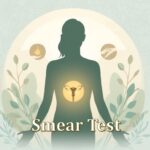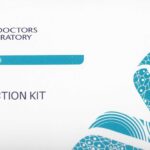Vaginal Dryness: Causes, Symptoms, and Effective Solutions
Vaginal dryness is a common issue affecting women of all ages, though it is more prevalent during menopause and perimenopause. It can cause discomfort, irritation, and pain during intercourse, impacting both physical and emotional well-being. While it is often associated with hormonal changes, several other factors can contribute to vaginal dryness. Fortunately, there are various treatments available, including NHS-recommended solutions and holistic approaches.
What Causes Vaginal Dryness?
The leading cause of vaginal dryness is a decrease in oestrogen levels, which helps maintain the thickness, elasticity, and natural lubrication of the vaginal walls. When oestrogen levels drop—whether due to menopause, perimenopause, breastfeeding, or certain medical treatments—the vaginal tissues become thinner and less lubricated, leading to dryness and discomfort.
Other common causes include:
- Medications – Some antihistamines, antidepressants, and hormonal treatments can reduce vaginal moisture.
- Cancer Treatments – Chemotherapy, radiotherapy, or surgical removal of the ovaries can trigger early menopause and vaginal dryness.
- Stress and Anxiety – High stress levels can disrupt hormone balance and reduce vaginal lubrication.
- Certain Soaps and Hygiene Products – Harsh soaps, douches, and scented feminine hygiene products can strip away natural moisture.
- Autoimmune Conditions – Conditions like Sjögren’s syndrome can cause dryness in the eyes, mouth, and vagina.
Common Symptoms of Vaginal Dryness
Women experiencing vaginal dryness may notice:
- Itching, irritation, or burning in the vaginal area.
- Pain or discomfort during sex (dyspareunia) due to lack of lubrication.
- Light bleeding after intercourse from increased vaginal sensitivity.
- Increased risk of urinary tract infections (UTIs) due to changes in vaginal flora.
- A feeling of tightness or discomfort in the vaginal canal.
NHS-Recommended Treatments for Vaginal Dryness
The NHS offers several treatment options for vaginal dryness, depending on the severity of symptoms:
1. Vaginal Moisturisers and Lubricants
- Water-based lubricants (such as YES or Sylk brands, available in the UK) provide temporary relief during intercourse.
- Vaginal moisturisers (like ReplensMD) help keep the vaginal tissues hydrated for longer periods.
2. Topical Oestrogen Therapy
For women with persistent vaginal dryness, low-dose vaginal oestrogen can be prescribed in the form of creams, pessaries, or vaginal rings. These treatments work locally, minimising systemic side effects.
3. Lifestyle and Dietary Changes
- Staying hydrated and consuming a diet rich in healthy fats (found in nuts, seeds, and fish) can support the body’s natural lubrication.
- Avoiding irritants like scented soaps, bubble baths, and douches can help maintain vaginal moisture.
- Regular sexual activity (alone or with a partner) can help increase blood flow to the vaginal area, improving elasticity and lubrication.
Holistic and Natural Approaches
For those looking for complementary solutions, several natural approaches may help:
1. Plant-Based Oestrogens (Phytoestrogens)
Foods rich in phytoestrogens—such as soy, flaxseeds, and tofu—may help support hormone balance naturally.
2. Pelvic Floor Exercises
Practising Kegel exercises can improve blood circulation and vaginal health.
3. Herbal Remedies
Some women find relief using aloe vera gels, coconut oil, or black cohosh, though evidence is mixed, and it is essential to check for allergies.
When to See a GP?
While vaginal dryness is common, it should not be ignored if it significantly impacts your quality of life. You should see a GP if:
- Symptoms persist despite using over-the-counter moisturisers and lubricants.
- You experience recurring pain, irritation, or infections.
- You notice abnormal vaginal discharge, which could indicate an infection.
Your GP can discuss treatment options, including prescription vaginal oestrogen or other medical solutions available through the NHS.
Final Thoughts
Vaginal dryness is a common but manageable condition. From NHS-approved treatments like vaginal oestrogen and moisturisers to holistic lifestyle changes, many options are available to help improve comfort and well-being. If symptoms persist, seeking professional advice ensures you receive the best treatment tailored to your needs.
At Holistic Gynaecology Clinic London, we offer expert guidance on managing vaginal health naturally and effectively. If you have any concerns, don’t hesitate to reach out for support.
UK-Based Sources
- NHS (National Health Service). (2023). Vaginal Dryness – Causes and Treatments. Retrieved from www.nhs.uk
- Women’s Health Concern (British Menopause Society). (2023). Menopause and Vaginal Dryness. Retrieved from www.womens-health-concern.org
- The Menopause Charity (UK). (2022). Understanding Vaginal Dryness and Treatment Options. Retrieved from www.themenopausecharity.org
- British Association of Sexual Health & HIV (BASHH). (2023). Managing Vaginal Health During Menopause.





